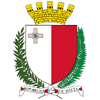CalvinAyre.com says – Malta has strong player protections in place, online gaming companies must separate players’ funds from operational monies. They offer aggressive rebates for non-maltese shareholders to counter 35% corporate tax. Gaming companies must pay 0.5% tax on gross wagers placed. There are no market restrictions for Maltese licensed gaming companies.

Malta is one of a couple regulatory regimes that can call the Mediterranean Sea its home. The Malta Gaming Authority is a single regulatory body that encompasses all gaming activities in Malta. This extends to amusement machines, gaming parlours and the devices therein, casinos, commercial bingo halls, the national lottery, cruise casinos, advertising lotteries, non-profit games and of course remote gaming.
Remote Gaming Regulations were adopted in 2004 and have seen a number of companies choose to set up on the Mediterranean island. Its proximity to the European market is seen as a strong advantage by a number of the publicly traded European gambling companies. The strict security requirements and impressive bandwidth that is offered cover up the fact that fees and taxes are a bit high.
Corporation tax of 35% is among one of the highest of any jurisdiction but they offer aggressive rebates for non-resident shareholders that can drop this rate to just 5%. Long terms of five years will be attractive to some whilst at the same time discouraging to others. They are required by the MGA to have an internal AML policy despite the fact that not all iGaming licensees are currently considered subject persons under AML legislation, although this will change with the Fourth Anti-Money Laundering Directive.
Type of Company Entity Available for iGaming Firms:
Private and public companies
Corporation Tax Rate:
35% with certain rebate claims
Additional Gaming Tax Rate:
Online casinos (Class 1 licensees) pay a fixed gaming tax of €4,660 per month for the first six months and €7,000 per month thereafter for the duration of the licence. An online casino licensee which is hosted on a platform in possession of a Class 4 licence, or EU/EEA equivalent thereof, pays only €1,200 per month for the duration of the licence.
Class 4 licensees which host and manage other operators pay no tax for the first six months, €2,300 per month for the subsequent six months, and €4,660 per month thereafter for the duration of the licence. For every operator which is not in possession of the relevant Class 1, Class 2 or Class 3 licence, but in possession of an EU/EEA equivalent thereof, being hosted and managed by the Class 4 licensee on its platform, the Class 4 licensee must pay an additional €1,165 per month.
Remote betting operators (Class 2 licensees), including those hosted on a platform, pay 0.5% of the gross amount of bets accepted through the remote gaming operation.
Poker rooms, betting exchanges and pool betting operators (Class 3 licensees), including those hosted on a platform, pay a sum equivalent to 5% of real income.
Pool betting licensees fall under Class 3 (i.e. 5% of real income, not 0.5% of aggregate stakes paid)
In all cases the maximum tax payable annually per licence shall not exceed €466,000.
Minimum Share Capital for an iGaming Company:
Class 1 and 2: €100,000
Class 3 and 4: €40,000.
Minimum Share Capital must be issued and fully paid up.
Security Requirements/Indemnity for Players Deposits:
Remote Gaming Regulations (2004) require player funds to be held separately in a Client’s Account. MGA monitors accounts and statements monthly to make sure funds are covered.
License Fee:
Upon application: €2,330
After successful application: €8,500 per annum
Renewal fee: €1,500
License Duration:
Five years. Renewable at the end of term.
Do Local Banks Process Online Gaming Transactions:
Yes
Bandwidth Type Available:
Multi-fiber links connected to various international carries at Gigabit carriers such as Cable and Wireless, Telecom Italia and Interoute.
Software Testing Requirements:
RNG test certificate and adequate systems review processing. Certifier is appointed by the MGA to audit the process before a license is granted.
Reporting Requirements to the iGaming Regulators and/or Financial Regulator:
Bi-annual accounts, Incident Reports, Monthly Players’ Balances, Clients Dunds’ bank statements and Decommissioning of gaming and control systems equipment.
Anti-Money Laundering Policy for iGaming Firms:
Requires Gaming Companies to have an Anti-Money Laundering (AML) policy in place and conduct KYC (Know Your Customer) procedures.
Restrictions on Jurisdictions from which you can take Wagers:
None
Contact Details of Government Department or Regulator:
Contact Person: Claudette Mifsud PR & Marketing Department
Address: Malta Gaming Authority
Suite 1, Level 3,
TG Complex,
Brewery Street,
Mriehel,
BKR 3000
Malta
Phone Number: +356 2546 9000
Website: www.mga.org.mt
Email: [email protected]